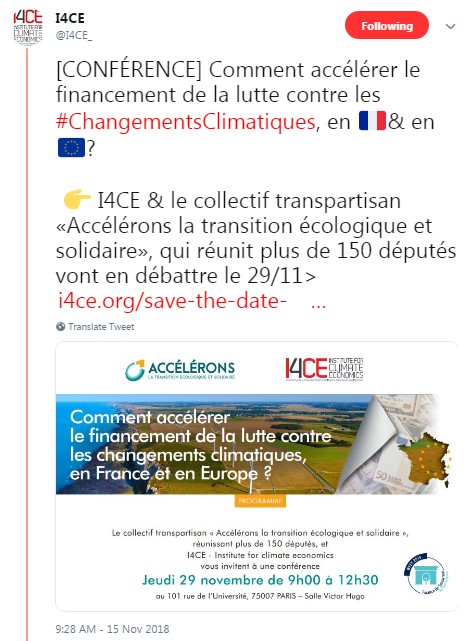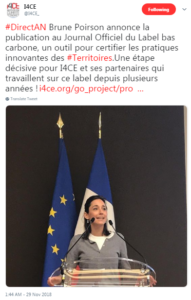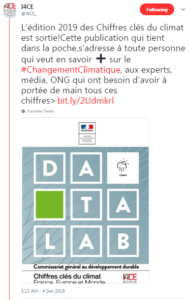I4CE tweets that YOU preferred in 2018
I4CE begins the new year by highlighting its 2018 activities that you have preferred. After dedicating our last newsletter/news to the five most read I4CE publications, we continue this week with the most popular I4CE tweets. Throughout the second half of 2018, we selected the most viewed tweet each month. A way to remember and take stock of the past year.
TOP TWEET SEPTEMBER : Is I4CE useful? Our stakeholders testify in our activity report
In September, in its activity report, I4CE highlighted the think tank’s daily concern: to have an impact, to provide useful information and ideas to decision-makers. Report in which we asked public decision-makers, associations or companies to testify about the usefulness of I4CE‘s actions. We enjoyed reading what our stakeholders think of us and tweeting about it, and a priori you too.
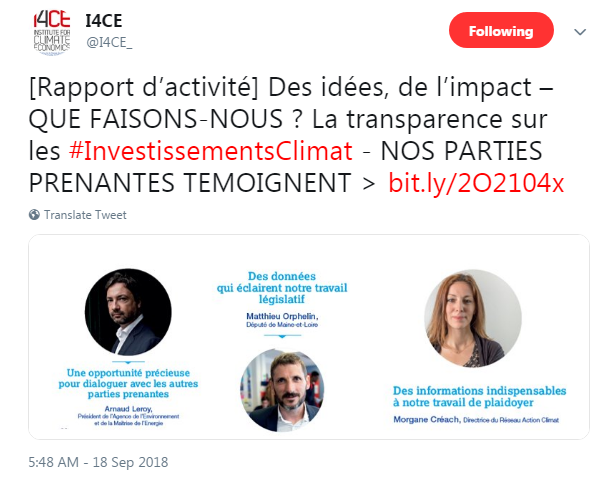
TOP TWEET OCTOBER: The (many) public policies for energy renovation
To find its way through the proliferation of measures put in place to encourage French households to renovate their homes, I4CE gave an overview in a brief published in October. An overview in the form of two illustrations: the first presented them in chronological order; the second ranked them according to the role played by these measures in the household decision-making process.
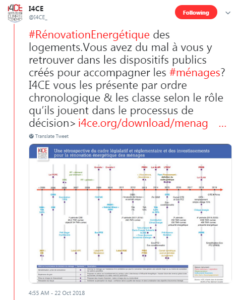
TOP TWEET NOVEMBER: Financing the fight against climate change on the National Assembly’s agenda
On November 29, I4CE organized a major conference at the National Assembly with the transpartisan group “Accélérons” that brings together more than 150 deputies. The objective: to take stock of climate investment in France thanks to the 2018 edition of I4CE‘s Landscape, and to discuss the measures to be taken to accelerate this investment, both on a French and European scale. Many of you twittered the invitation to this event, and many came to attend the discussions with MPs.
TOP TWEET NOVEMBER #2: Brune Poirson, Secretary of State for Ecology, announces the release of the low carbon label
I4CE having been very present on twitter in November 2018, we are adding the second most popular tweet this month. At a conference organized by I4CE, Brune Poirson launched the low carbon label. Thanks to this label, actors that innovate for climate, and in particular actors in agriculture and forestry, will be able to quantify and certify their reductions in greenhouse gas emissions and receive funding for these reductions. The result of several years of I4CE‘s work in close collaboration with multiple partners.
TOP TWEET DECEMBER: Understanding everything about climate in a few figures
On the opening of COP 24 in Katowice, the Ministry of Ecological Transition and I4CE published the 2019 edition of the Key Climate Figures. A small document to keep in your pocket, which provides many figures and graphs on the causes and effects of climate change, the policies put in place to fight this phenomenon, or the greenhouse gas emissions worldwide, in Europe and France.
